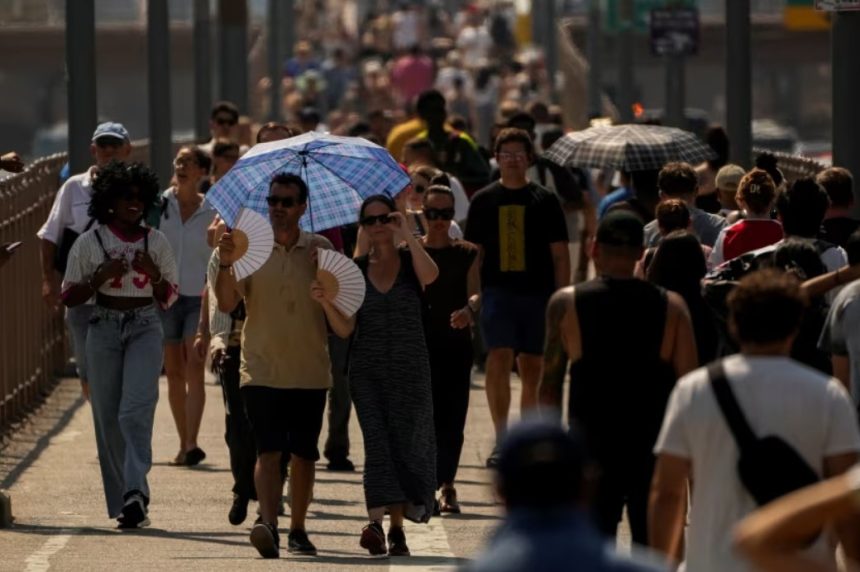Heatwave Grips Greece: “One of the Strongest in 15 Years,” Says Meteorologist
Greece is reeling under a fierce heat wave, with meteorologist Giannis Kallianos warning that the ongoing swelter ranks among the most severe the country has faced in the past decade and a half.
“This heat wave we’ve been experiencing in the last few days will go down as one of the strongest in 15 years, but not unprecedented or the strongest of all time,” said Kallianos, offering a stark breakdown of this relentless weather front.
Friday saw an overwhelming sense of heat that peaked at a staggering 51.9°C in Halastra, Thessaloniki — a mix of temperature and humidity that created near-suffocating conditions. “It is not the temperature that matters, but the relative humidity,” Kallianos stressed.
The figures are jaw-dropping.
- Temperatures soared to 45°C in Larissa and Karditsa on 22 July — reportedly the highest recorded in Europe that day.
- Central Sterea and Thessaly faced 44°C widespread.
- 40-43°C was the norm elsewhere on the mainland.
- For seven to eight consecutive days, scorching conditions persisted, a duration rarely seen in recent memory.
- Even night brought no relief — Athens held at 37°C at 10 p.m. on 25 July.
- Western Greece baked under 42-44°C, notably in regions from Epirus to the Peloponnese.
- In Attica alone, temperatures hit 43°C in Elefsina, 42°C in Patissia, and 41°C in Glyfada, with areas like Alimos, Nea Smyrni, and Piraeus showing similar extremes.
- Messinia recorded 46°C, just a degree shy of Europe’s peak heat record.
- Even traditionally breezier island regions like Rhodes and the Ionian Islands didn’t escape — both logged highs around 42-43°C.
- In many urban centres, night-time lows refused to dip below 30°C, intensifying the heat stress.
More punishing days lie ahead, according to Kallianos. He forecasts continued high temperatures through Monday, potentially touching 38-39°C in eastern parts of the country.
If so, this will shape up to be a solid 8-day heatwave, beginning on 21 July and expected to taper off by 28 July.
And while the current wave is brutal, Kallianos maintains perspective: “This heat wave can in my view, be considered one of the strongest since 2010, but not the absolute strongest or unprecedented.”
Still, he acknowledges its significance in Greece’s climate timeline: “It will be remembered from time to time like other historical heat waves of the past, leaving behind valuable data for the study of climate trends and thermal extremes in a small country like Greece.”
In a candid tone, Kallianos addressed those who doubted his earlier warnings: “The previous 2 heat waves we experienced were mild. I reported this to you days before they came.
In fact, at the time, some people told me: Where do you see mild at 38-40°C? We were roasting. I described today’s heatwave, with all the prognostic modesty that characterises me, as strong days ago because I had to prepare you… Some people were then quick to tell me that I was terrorising people… Never mind.”
While Kallianos pointed out that this summer has been milder than last year’s, temperature-wise, apart from this week, the data he’s shared will likely fuel ongoing conversations about climate change and the increasing volatility of Mediterranean weather systems.
This current heatwave has clearly etched itself into modern meteorological history, not just for Greece, but for the entire region watching with wary eyes.






